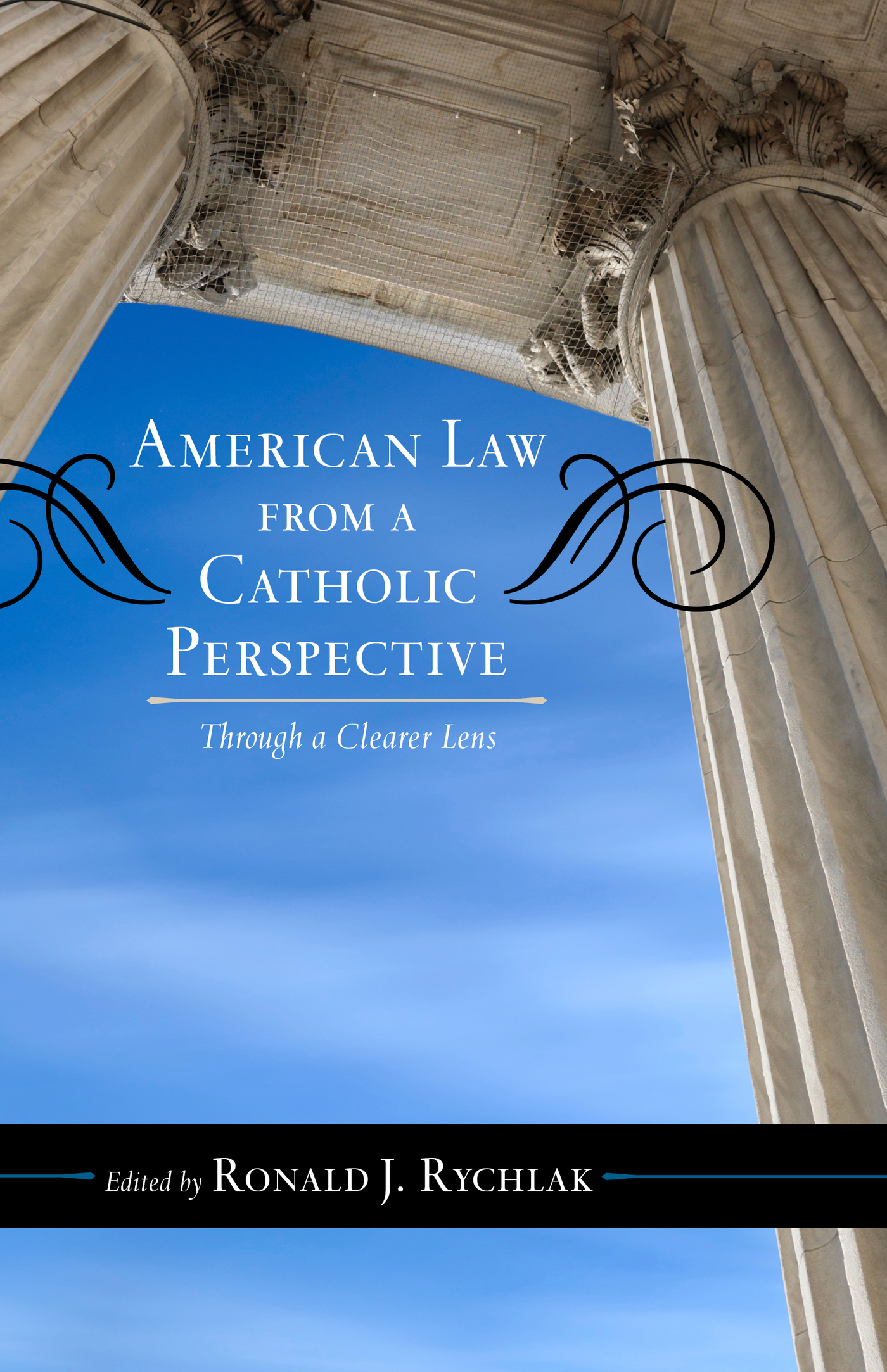American Law from a
Catholic Perspective
Catholic Social Thought
This series focuses on Catholic social thought and its application to current social, political, economic, and cultural issues. The titles in this series are written and edited by members of the Society of Catholic Social Scientists. They survey and analyze Catholic approaches to politics, sociology, law, economics, history, and other disciplines. Within these broad themes, authors explore the Churchs role and influence in contemporary society. The Society of Catholic Social Scientists was formed in 1992 to rejuvenate a distinctively Catholic scholarship in the social sciences.
Titles in the Series
The Public Order and the Sacred Order, by Stephen M. Krason, 2009.
Bioethics, Law, and Human Life Issues, by D. Brian Scarnecchia, 2010.
Pope Pius XII on the Economic Order, by Rupert J. Ederer, 2011.
Economics As If God Matters, by Rupert J. Ederer, 2011.
Toward the Common Good, edited by Robert F. Gorman, 2011.
Sociology and Catholic Social Teaching, edited by Stephen R. Sharkey, 2012.
Child Abuse, Family Rights, and the Child Protective System, edited by Stephen M. Krason, 2013.
Catholicism and Historical Narrative: A Catholic Engagement with Historical Scholarship, edited by Kevin Schmiesing, 2014.
The Crisis of Religious Liberty, edited by Stephen M. Krason, 2014.
American Law from a Catholic Perspective: Through a Clearer Lens, edited by Ronald J. Rychlak, 2015.
American Law from a
Catholic Perspective
Through a Clearer Lens
Edited by Ronald J. Rychlak
ROWMAN & LITTLEFIELD
Lanham Boulder New York London
Published by Rowman & Littlefield
A wholly owned subsidiary of The Rowman & Littlefield Publishing Group, Inc.
4501 Forbes Boulevard, Suite 200, Lanham, Maryland 20706
www.rowman.com
Unit A, Whitacre Mews, 26-34 Stannary Street, London SE11 4AB
Copyright 2015 by Ronald J. Rychlak
First paperback edition 2016
All rights reserved. No part of this book may be reproduced in any form or by any electronic or mechanical means, including information storage and retrieval systems, without written permission from the publisher, except by a reviewer who may quote passages in a review.
British Library Cataloguing in Publication Information Available
Library of Congress Cataloging-in-Publication Data
The hardback edition of this book was previously cataloged by the Library of Congress as follows:
American law from a Catholic perspective : through a clearer lens / Edited by Ronald J. Rychlak.
p. cm. (Catholic social thought)
Includes bibliographical references and index.
ISBN 978-0-8108-8917-0 (cloth : alk. paper)
ISBN 978-1-4422-6168-6 (pbk.: alk. paper)
ISBN 978-0-8108-8918-7 (ebook)
1. LawReligious aspectsUnited States. 2. Catholic ChurchDoctrines. 3. Church and stateUnited States. I. Rychlak, Ronald J., editor.
KF358.A44 2015
261.5dc23
2014039700
 TM The paper used in this publication meets the minimum requirements of American National Standard for Information Sciences Permanence of Paper for Printed Library Materials, ANSI/NISO Z39.48-1992.
TM The paper used in this publication meets the minimum requirements of American National Standard for Information Sciences Permanence of Paper for Printed Library Materials, ANSI/NISO Z39.48-1992.
Printed in the United States of America
To my daughter Susanna:
Two Ss, two Ns, and two As
But only one you!
Foreword
Gerard V. Bradley
What should one expect to learn from a volume about American law from a Catholic perspective?
In one respect, not much: the roster of distinctively Catholic laws in American history is short. The list includes the priest-penitent testimonial privilege, which seems to have been first articulated in this country in the 1813 New York case of People v. Phillips (a criminal prosecution in which Jesuit Fr. Anthony Kohlmann was called as a witness). It also includes the novel legal form we call corporation sole, which was created across American jurisdictions in the mid-nineteenth century to make Church property holdings safe from lay trustees revolts. (The prevailing rule had vested Church ownership in boards of laypersons and was itself an artifact of our Protestant heritage.)
These and very few other American laws are distinctively Catholic, by dint of debt to what Catholics hold by way of doctrine but which other Christians do not. Differences between Catholics and the various Protestant groupings in matters of doctrine, as well as on modes of worship and form of church governance, were and are substantial. But they have been muted substantially by the limited relevance of these ecclesiastical matters to any sound account of the political common good. And they have been rendered invisible, in a way, by the First Amendment. Properly interpreted, that cardinal provision prohibits laws which presuppose the truth (or falsity) of any churchs position on doctrine, liturgy, and church authority.
Considered not in view of their distinctive doctrines but as a particular political constituency, Catholics have contributed mightily, of course, to the making and enforcing of Americas laws. How could it be otherwise? They have long constituted a quarter or so of the population; America is a democracy, and Catholicism is not politically quietist. But the laws with decisive Catholic fingerprints on them are surprisingly few. They include the rules governing the states relationship with nonpublic schools (for these schools have been mostly Catholic); the early stages of the law pertaining to organized labor (for Catholics predominate some of those nascent unions); morals laws (about divorce, contraception, censorship) after World War II; and the anti-abortion movement after Roe v. Wade. Catholics are presently (2014) in the forefront of resistance to the Obama Administrations contraceptive mandate. They have formidable Protestant allies in that fight.
Some other areas of American law owe their origins and meaning in large part to the presence of Catholics in America. Among these is church-state law, including provisions of state constitutions since the founding and the interpretation of the federal Constitution since World War II. These provisions can only be fully accounted for by treating them partly as attempts to stymie Catholic culture-forming power. Spasms of anti-Catholicism pockmark American history. Up to and into the twentieth century these paroxysms owed to Protestant disapproval of Catholicism as an abhorrent religious system, one suffused by superstition, displacement of individual conscience by priestly authority, and further marred by an alleged dual political allegiance. More recently the distinctive religious features of the faith have become matters of indifference, and the Pope is solely a spiritual leader. Now it is their witness to the moral truth which most distinguishes Americas Catholics from their countrymen.
The pre-Vatican II emphasis in Church teachings favoring a Catholic confessional state fueled some of Americans anti-Catholicism, even though it was stillborn on these shores. One could scour the most detailed accounts of American history and come up empty looking for a Catholic prelate or politician or who either denied that teaching in principle or who favored it as an American practice. It is not curious, then, that in todays challenging environment Church leaders (possibly without exception) ground their claims against government incursions upon

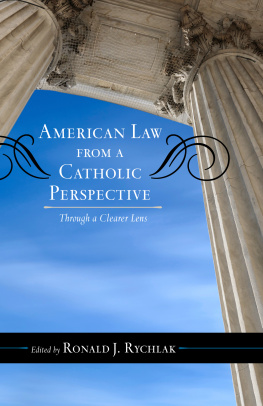
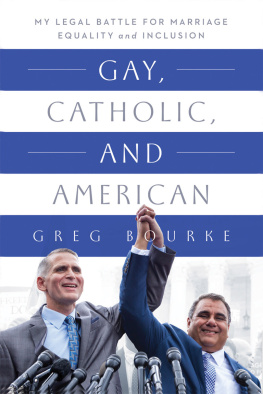
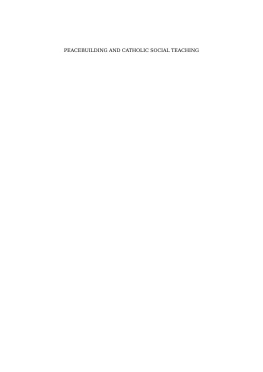
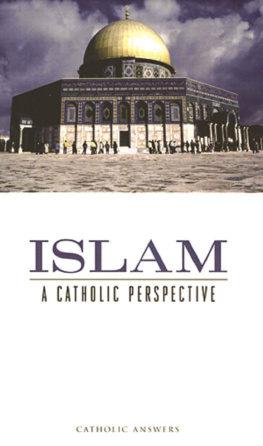
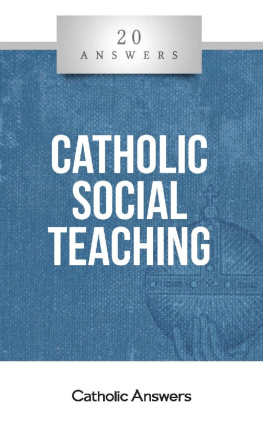

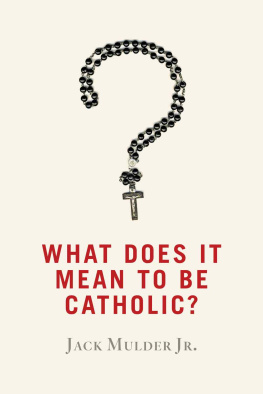
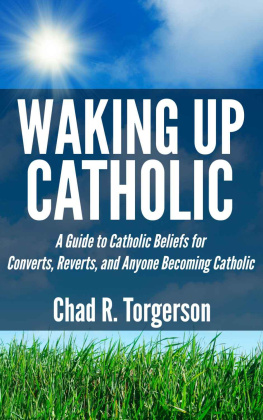
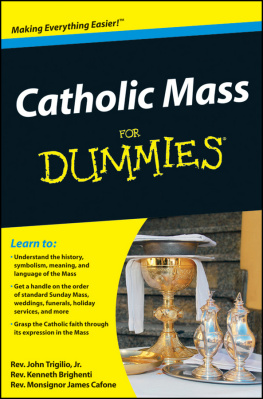
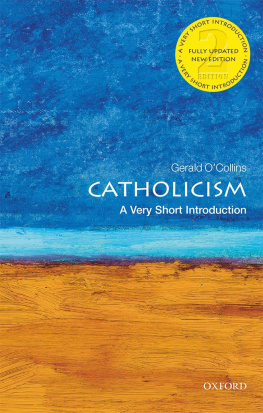
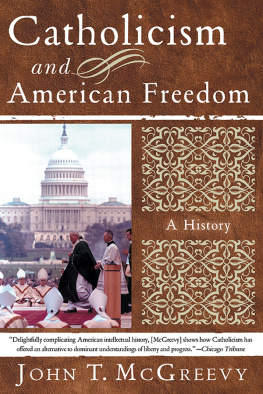
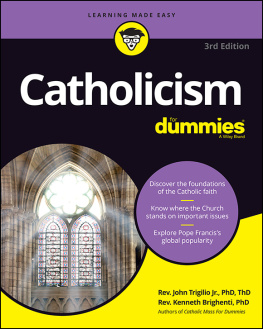

 TM The paper used in this publication meets the minimum requirements of American National Standard for Information Sciences Permanence of Paper for Printed Library Materials, ANSI/NISO Z39.48-1992.
TM The paper used in this publication meets the minimum requirements of American National Standard for Information Sciences Permanence of Paper for Printed Library Materials, ANSI/NISO Z39.48-1992.